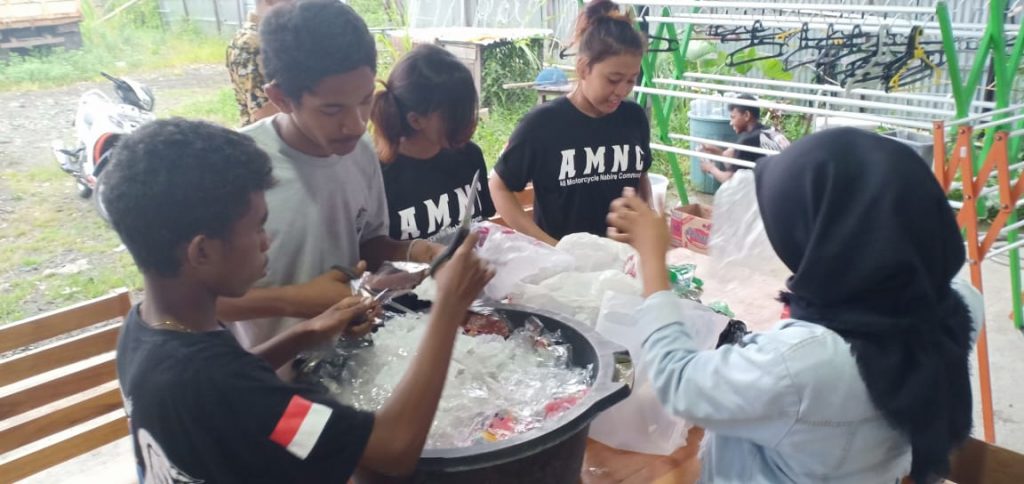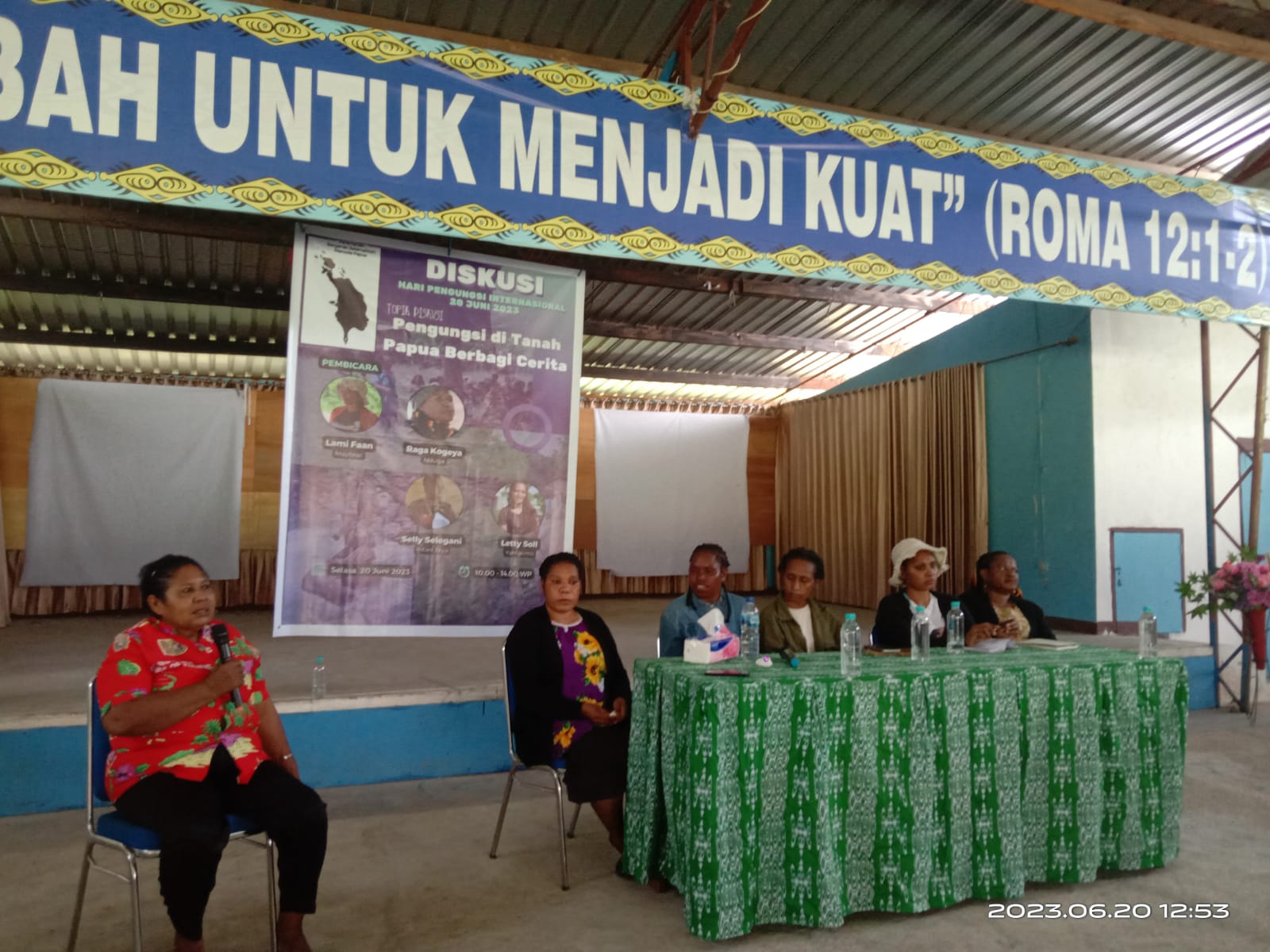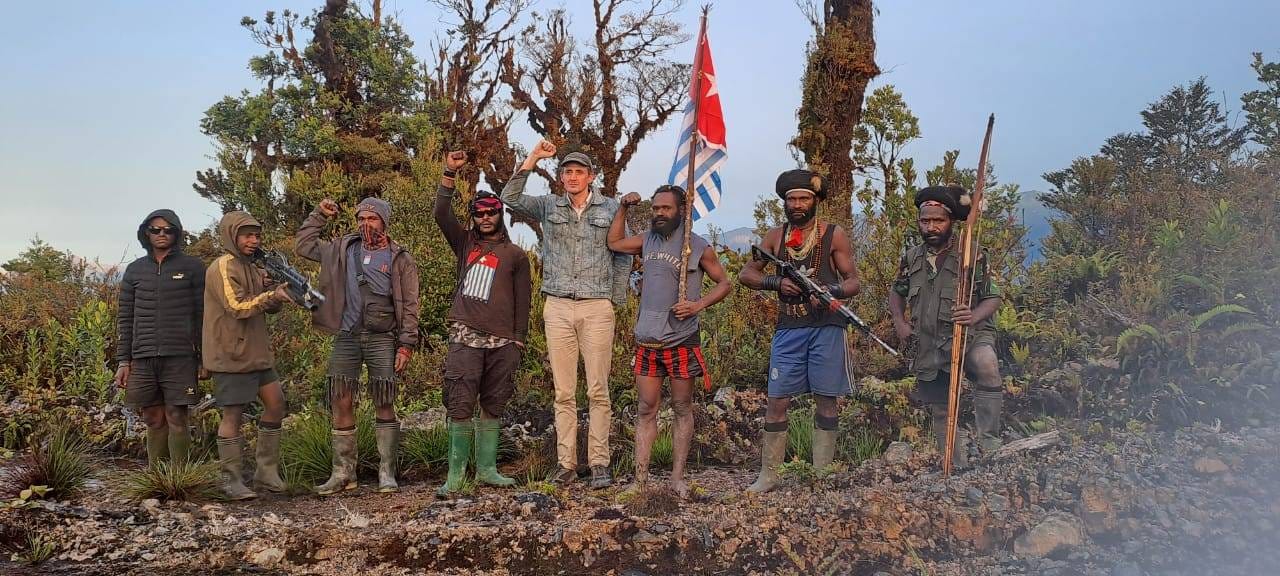
Nabire, Jubi – It was a lovely Monday noon (April 14th, 2019) when a group of the youth was gathering in the front yard of Bentot Yatipai’s house. Chatting and laughing, these young people, who are members of Amoye Youth Community, were busy cleaning and cutting papers and plastic waste, then putting it into plastic bottles. They were making ‘eco-bricks’.
Amoye Youth Community was established in 2006 to support young people who are passionate about motorbike at that time. As time goes by, the group started to think about their contribution to their environment. So they began to go around cleaning and collecting plastic waste from some particular locations in town, encouraged local people to donate their plastic waste and initiate a recycling program.
This group’s initiative, said Amoye youth community leader Bentot Yatipai, is a response towards insufficient waste management by the local government. “We conduct social activities, environmental awareness and educational campaign. Waste management is our top priority. Total our members now are 200 coming from several motorcycle clubs,” he said.
According to Yatipai, despite the lack of waste management by the local government, people are also so aware of their surroundings. “Our neighbourhood is still messy. People still not aware about hygiene, healthy environment and its prevention. This is why we initiated the recycling program,” said Yatipai.
However, his group does not set a particular schedule of making eco-bricks due to their other activities. The community members could gather at any time, particularly on weekend or holiday.
“Almost every Sunday they come for gathering. They understood their task and already knew what to do. Collecting waste, wash it, cut it and put the cutting plastics into bottles,” he said.
In addition to being environmentally friendly, eco-bricks also have economic value, to produce chairs, tables or photo booths, for example. “We want to start this program by inviting residents to donate plastic waste and separate their garbage,” he said.
“We don’t know the exact number of plastic waste we received, but it is quite a lot, as many people in Nabire collect waste from other residents from other regencies,” he said.
Meanwhile, Lukas Mote said he is interested in joining the Amoye Community because he thinks it has a useful contribution to the environment, health and education. “I am interested in joining because it offers many programs and accommodates members for sharing,” said Mote.
As a capital town of Nabire Regency, Nabire is geographically strategic as it becomes an entrance of the central highland area which consisting of many regencies. However, the demographic explosion has led this regency to a problem of waste disposal management.
From 2016 to 2018, it predicted that the town produced 350-400 m3 of waste per day and this number estimated continuously increases. Some locations such as Pasar Karang, Kalibobo and Terminal Oyehe are full of waste and dirty because it uses as the temporary waste terminal (TPS). Furthermore, people do not separate garbage and plastic waste.
A resident Handayani tells she often throws her domestic waste in a temporary disposal site located in the traditional market at night. According to her, Nabire is still dirty. Therefore, she asks the local government of Nabire to stipulate the regional regulation to regulate sanitation.
“If there are regulation and fine, Nabire must be clean and comfortable,” she said.
Meanwhile, Nabire Environment Office does not have a database about daily waste produced. Officers only pick up the garbage from the temporary disposal waste to the waste terminal (TPA)
In regards to this, the secretary of Nabire Environment Office Yohanis Ramandai said the office does not have a tool to estimate how much garbage produced per day. His office is only responsible for managing the garbage, including collecting, transporting and disposing of at the waste terminal.
In 2018, around IDR 100 million has been budgeted for waste management, including the cost for fuel, vehicle maintenance and meals for cleaning service officers. “Meanwhile, for 2019, IDR 1 billion budget has been submitted to regional working plan but not been approved yet,” said Ramandey.
In regards to Amoye Youth Community, Ramadey appreciates their action in reducing plastic waste. “I truly appreciate them. We might invite them to collaborate in reducing waste,” he said. (*)
Reporter: Titus Ruban
Editor: Pipit Maizier















